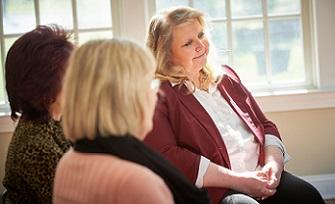National Cancer Prevention Month

There are many factors which can cause cancer, not all of which are fully understood. Despite this uncertainty, we are aware of some ways to decrease the risk of developing certain types of cancer. This February, as we recognize National Cancer Prevention Month, we’d like to share this knowledge about how to decrease the number of people diagnosed with cancer each year.
Some of these methods are obvious and frequently discussed. It is estimated that a third of US cancer cases could be prevented through diet and exercise. Particularly for those with other risk factors, staying in shape is a good step towards preventing some cancers. Even exercising poses risks in the summer months though, as spending too much time in the sun can lead to skin cancer. So, when you’re outdoors in the summer, particularly between the hours of noon and four, be sure to use sunscreen and stay in the shade if possible.
One of the most important ways to prevent cancer is through genetic testing. Certain cancers, like breast cancer, can have a genetic component which is identified through testing. Being armed with this information opens the door to proactive decision-making about how to avoid or minimize the risk of cancer. Read more about the hereditary aspect of cancer here.
For other forms of cancer, like prostate or cervical cancer, regular screenings can lead to early detection of cancer, the next best thing to prevention. Catching these cancers early can prevent them from becoming debilitating and ensure that you are strong enough to take on cancer.
We have not yet reached the point where lifestyle choices and vigilance about seeing your doctor will prevent cancer. However, whether you’ve never had cancer or are trying to avoid a recurrence, making deliberate, informed decisions in your daily life can lower your risk.
February is also Gallbladder and Bile Duct Cancer Awareness Month, which we’ll cover in this blog in the coming weeks. We’ll also highlight CSC’s resources on immunotherapy and clinical trials which help illuminate some of the treatment options open to people with cancer.
Until then, stay strong and think about what we all can do to prevent and overcome cancer for ourselves and our loved ones.





















